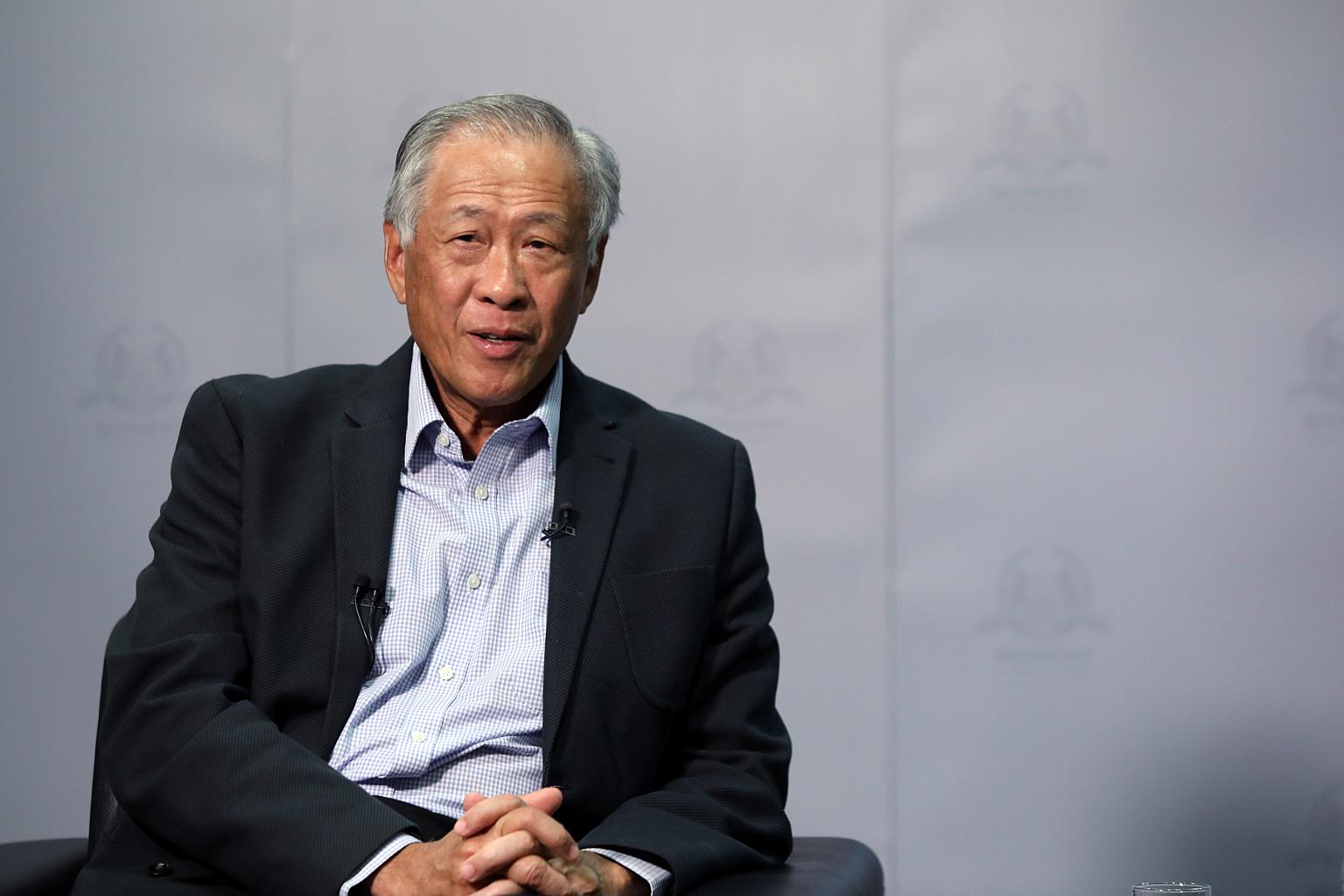SAF to set up new command centre by end-2019 to plan, monitor and coordinate counter-terror operations
Sign up now: Get ST's newsletters delivered to your inbox

Defence Minister Ng Eng Hen announced that a new Special Operations Command Centre, to be sited at Hendon Camp, will be operational by the end of 2019.
PHOTO: LIANHE ZAOBAO
SINGAPORE - The Singapore Armed Forces' new Special Operations Command Centre (SOCC) will be operational by the end of this year to plan, monitor and coordinate counter-terrorism operations, especially in cases of multiple attacks in multiple areas.
Sited at the commando headquarters at Hendon Camp in Loyang, the SOCC will be the main command centre to manage multiple counter-terrorism and contingency operations.
It will also be equipped with enhanced systems to support operational planning, coordination and to provide situational awareness. When required, the SOCC will work with agencies in managing incidents.
Defence Minister Ng Eng Hen announced the new centre last Friday (June 28) as he warned that Singapore is "one of the hot spots" for terrorism as the centre of gravity shifts from the Middle East to this region.
"There are good reasons why our intelligence agencies all come to the same assessment. The centre of gravity, even as it moves away from Iraq and Syria, will shift to other places. And we're one of the hot spots, let me make this very clear.
"Returning fighters will be one, but also foreign fighters, because of the networks they've formed in Iraq and Syria, will carry it to our theatre of operations," he said.
Dr Ng was giving his annual interview ahead of SAF Day on Monday, at Murai Camp, after officiating the ground-breaking ceremony for Safti City, a state-of-the-art training facility which will open from 2023.
In a statement on Sunday, the Ministry of Defence said the SAF's next-generation counter-terrorism operations will use technology such as robotics, unmanned systems, artificial intelligence and data analytics.
"This will enable the counter-terrorism operations to be faster, leaner and more lethal, with the aim to achieve systemic overmatch against perpetrators and respond more effectively in a shorter period of time," it added.
Other than terrorism, another transnational threat that the SAF is gearing up for is in the cyber domain, said Dr Ng.
He said the SAF will ramp up its capabilities in cyberspace, which will be increasingly contested, adding that the SAF recognises that it needs to recruit and train more regulars and cyber specialists as the core of the cyber force.
There can be longer careers for servicemen in cyber and other specialised vocations because their expertise will still be valid as they grow older, he said.
Mindef and the SAF have steadily built up capabilities in this domain. In 2017, the Defence Cyber Organisation - a top-level command that develops cyber defence policies and strategies for the SAF, defence industry partners and other Mindef-related organisations - was announced.
In March this year, the Defence Cyber Security Centre was established in the Defence Cyber Organisation to enable a more effective and coordinated response to cyber incidents across the defence sector.
Meanwhile, the SAF is also looking at reducing the time taken for servicemen to perform administrative tasks.
For instance, airmen at Tengah Airbase have begun trialling a tracking system for equipment used for maintenance of aircraft, such as an external power unit.
Through the use of a mobile app, they can book these equipment for a period of time, as needed. In the past, servicemen had to write to the unit in-charge to borrow the equipment, which may be harder to track, as they are located across the airbase.
Another app is also being used for the reporting of attendance, for supervisors to plan and allocate manpower, as well as to track servicemen's training and qualifications.
Military Expert 5 Khor Mark Wan, 37, who is head of Airbase Operability Systems, told reporters last Wednesday that the RSAF has always looked at technology as a force multiplier, with an example being the smart fleet management system, first announced last year.
"The FMS, for short, applies data analytics into aircraft operational information and maintenance data, and it can… deliver prognostics, condition-based maintenance. And all these will allow our maintenance crew to be more effective in generating air power," he said.
For the army, instead of going from place to place to draw their equipment, soldiers from active armour units at Sungei Gedong Camp can now be equipped in a single building.
The first one-stop Integrated Force Preparation Hub, which came into operation in March this year, will be expanded to include operationally ready national servicemen (NSmen) in the future.
"So you'll have tracked vehicles, communications, optical equipment and weapons... centralised. Even now during a mobilisation, you don't collect it. It comes in pallets, it's pushed to you," said Dr Ng.
"In fact, we have had the reverse comment. Some NSmen have told me, minister, this is too fast, I move from office, and suddenly I'm supposed to go out, I need some more time to adjust. It's a good problem but I'm sorry, we're going to scale this up so that we reduce admin time as much as possible."


